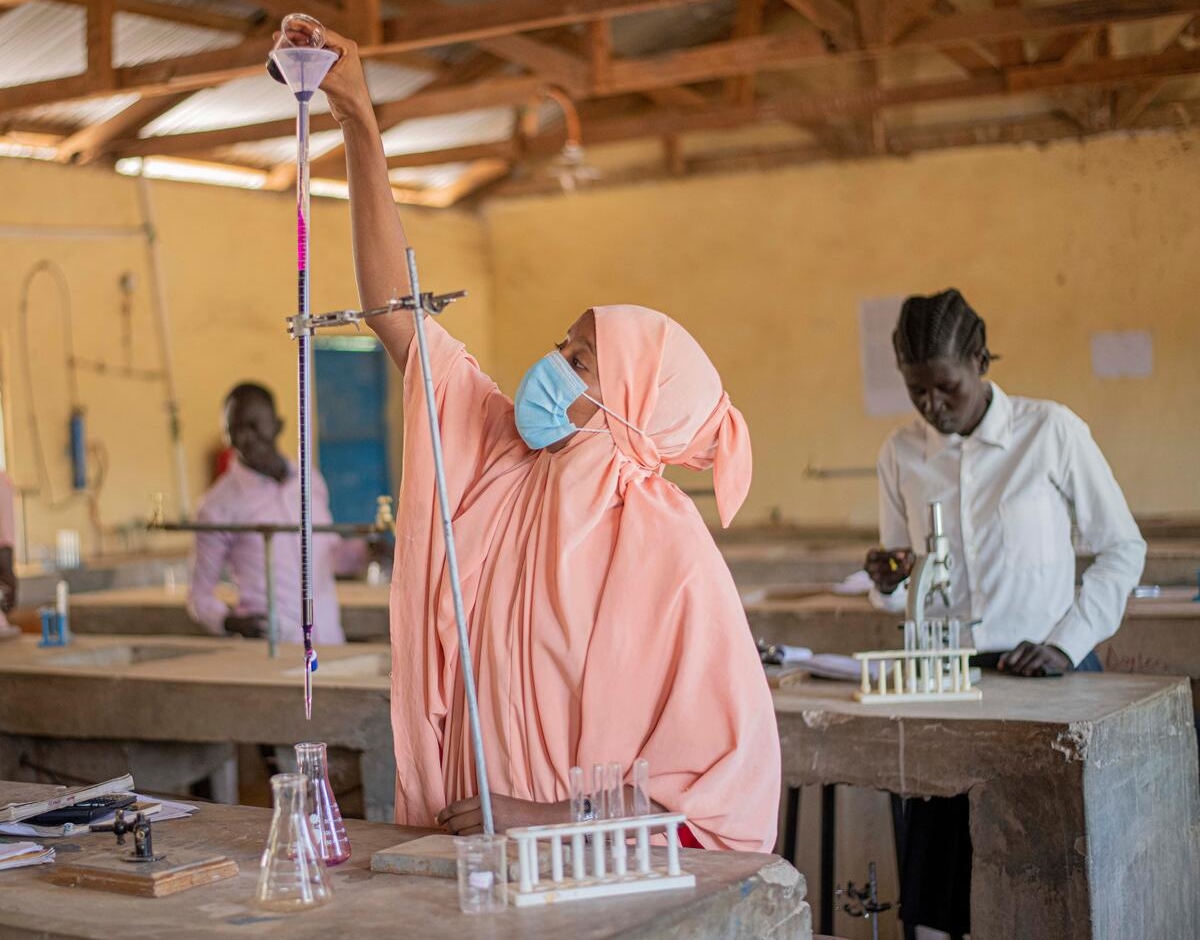
The correlation between fragility and gender equality is well documented. A recent OECD report found that progress has stagnated or declined in 11 of the 13 extremely fragile contexts when it comes to the Sustainable Development Goal 5 on gender equality (OECD 2020, States of Fragility 2020).
Amidst record displacement globally, women and girls contend with additional risks during their displacement journey, such as physical and sexual violence, kidnappings, early and forced marriages, and intimate partner violence. Many suffer the resulting trauma for life. In addition, women and children are at substantial risk of sexual exploitation and abuse when accessing humanitarian assistance. For example, case trends in Cabo Delgado, Mozambique, in 2021 highlighted sexual exploitation and abuse against displaced women and children allegedly perpetrated by community leaders when seeking inclusion in assistance lists, access to which is usually controlled by these same community leaders[1].
Once forcibly displaced women reach safety at the destination offering them refuge, they continue to experience amplified disadvantages due to their gender, including socioeconomic ones. Displaced women are often worse off with an average disadvantage of about 24 percent when compared to women of the host country (Georgetown Institute for Women, Peace and Security, 2021, Women, Peace and Security Index 2021/22). Overall, they are less likely to be financially included, economically empowered, and feel less free to move about. Their vulnerability is heightened by their loss of civil documentation, social networks, and sources of income – often subsistence agriculture – which impedes access to public services and job opportunities, information, nutrition, education, and social participation.
Gender inequality is so persistent that a recent study by the World Bank Group on the intersection of gender, forced displacement, and the multidimensional nature of poverty finds gender to be a significant predictor of chronic deprivation (such as failure to complete school), reflecting accumulated disadvantage over time and perpetuating poverty. The COVID-19 pandemic has compounded these disadvantages, as discussed in an earlier post.
How can these gendered risks and disparities be addressed in complex, fragile circumstances?
The protracted nature of forced displacement necessitates balancing emergency humanitarian responses and longer-term development approaches that must prioritize targeted responses to address context-specific gender roles, identities, and power dynamics of displaced persons.
Programmes that facilitate individual access to registration and civil documentation are crucial. One such example is UNHCR’s partnership with the Catholic University of Mozambique to provide legal assistance and support on legal documentation to internally displaced persons (IDPs). An estimated 60 percent of the IDP population loses their personal and civil documentation because of being forced to flee. The lack of documentation presents significant protection risks, particularly for women and young girls. It further restricts their freedom of movement, limits access to life-saving services, and increases exposure to harassment or arbitrary arrest and detention.
Meaningful interventions to address gender inequality in protracted displacement contexts also require more comprehensive analyses and understanding of the socio-cultural norms, needs, and gender-specific concerns of men and women living in camps versus those displaced in urban and rural areas. These differences and resulting dynamics affect their access to services, self-reliance, and capacity for economic inclusion.
Projects that offer survivors of gender-based violence a chance to rebuild their lives and be self-reliant are important. Since 2020, almost 400 survivors and people at risk of gender-based violence in the Kasai and Kasai Central provinces in the Democratic Republic of the Congo have received assistance from UNHCR and its partners through vocational training in different sectors, including male-dominated sectors such as information technology and electronics. This has enabled the survivors to challenge gender stereotypes and increase their financial independence.
Supporting gender equality around access to land is essential as property rights are a critical driver of economic growth and development. This needs strong political will by local and national governments and development banks. In Mozambique, for instance, women have weaker property and contractual rights to land and other natural resources despite the introduction of DUAT (the right to use and benefit from the land). Available data from the African Development Bank (AfDB) indicate that 29 percent of women have land and house ownership compared to 71 percent of men. Challenges remain when women claim their rights over the DUAT they own due to male dominance, which is rooted in and respected by society. UNHCR has collaborated with the AfDB in Mozambique in a recently approved $45 million integrated development corridor project that will include displaced persons as project beneficiaries. Specifically, the project will allocate land to IDPs interested in project activities. In doing so, the project will provide both male and female IDPs with the opportunity to produce their food and subsequently improve their economic resilience and quality of life. We need to replicate partnerships and projects that support the socioeconomic growth and empowerment of displaced persons, bearing in mind the gender constraints that they face.
Governments, humanitarian actors, local authorities, and development actors must continue to prioritize gender inequality in the myriad displacement and fragile settings to ensure equitable and effective protection responses and inclusive policies. This is called for by the Global Compact on Refugees and the Comprehensive Refugee Response Framework, which recognize that sustainable solutions to forced displacement cannot be achieved without international cooperation and a whole-of-society approach. Everyone has a role to play in pushing this agenda forward.

[1] PSEA Network Cabo Delgado, SEA Trends Presentation: February 2021
